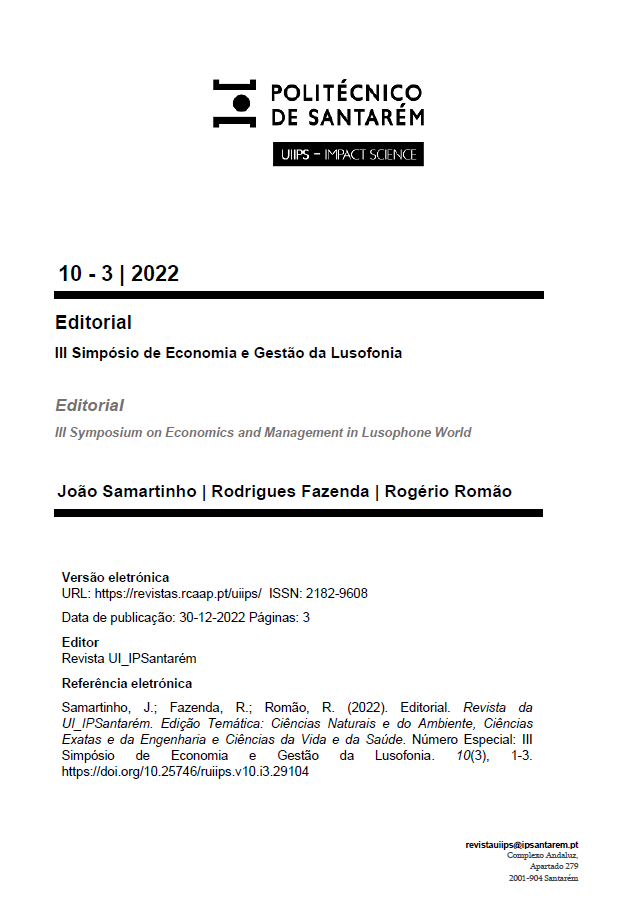Reflection on the role of district governments in the sustainable management of artisanal gold mining in Mozambique
Natural and Environmental Sciences
DOI:
https://doi.org/10.25746/ruiips.v10.i3.29119Keywords:
District governments, management, artisanal gold mining, sustainabilityAbstract
This article focuses on the role of district governments in the sustainable management of artisanal gold mining in Mozambique: a case study of the district of Manica. Therefore, the objective of this study is to analyze the role of the district government in the sustainable management of artisanal gold mining in the face of opportunities and obstacles in the development of that district. Methodologically, a qualitative approach was adopted associated with a literature review and semi-structured interview techniques (formal and informal conversations) supported by a script of questions for each target group. The interview was applied to nine people being directed to members of the district government by the district services of economic activities, geology and mines, assuming the established hierarchy encompassing the locally instituted leadership at the base, two members of the associations and individual miners including aimed at local community members at the focal points and one resident of munhena. The analysis of the interviews carried out was based on content analysis. The results obtained showed that there are tendencies for local authorities to intervene positively in the sustainable management of artisanal gold mining, given that there is strong legislation at the national level that provides for mining associations, so that artisanal miners, when sensitized to join the association, can have capacity building and training on good practices and sustainable standards for artisanal mining.
Downloads
Published
How to Cite
License
Copyright (c) 2022 João Francisco de Carvalho Choé

This work is licensed under a Creative Commons Attribution-NonCommercial-NoDerivatives 4.0 International License.
Authors publishing in this journal agree to the following terms:
Authors retain copyright and grant the journal the right of first publication, with the article simultaneously licensed under the Creative Commons Attribution License that allows sharing of the work with acknowledgement of authorship and initial publication in this journal.
Authors are permitted to enter into additional contracts separately for non-exclusive distribution of the version of the article published in this journal (e.g., publish in an institutional repository or as a book chapter), with acknowledgment of authorship and initial publication in this journal.
Authors have permission and are encouraged to publish and distribute their work online (e.g., in institutional repositories or on their personal webpage) at any point before or during the editorial process, as this may generate productive changes, as well as increase the impact and citation of the published work.



